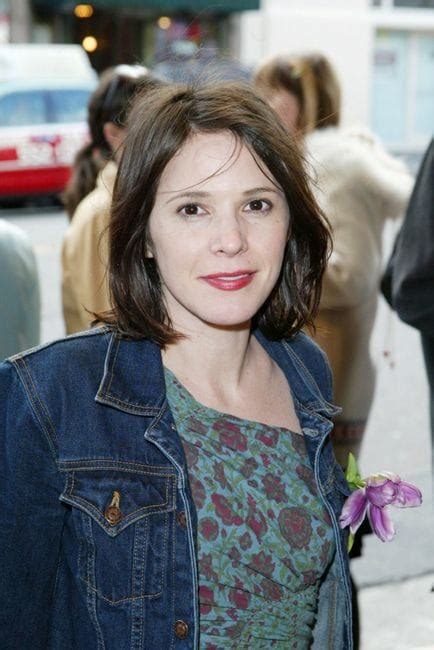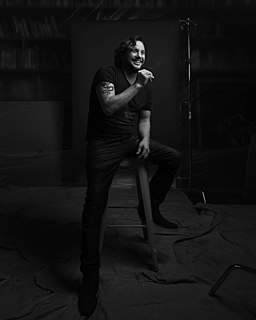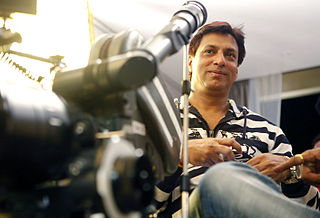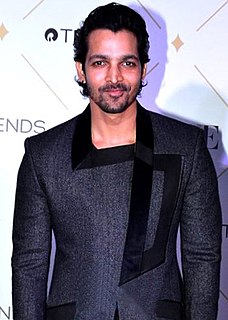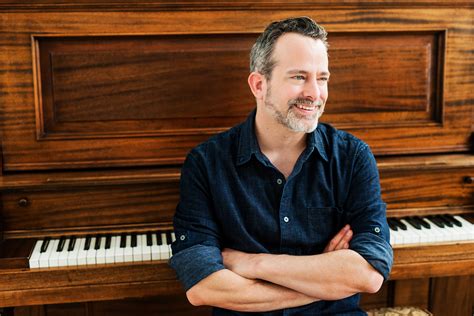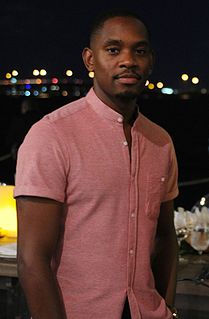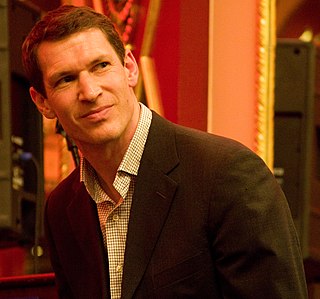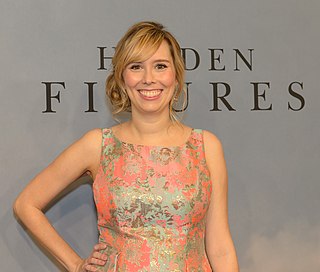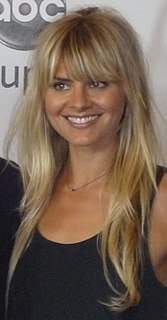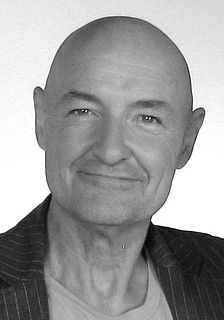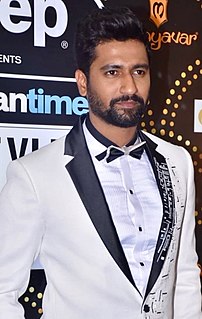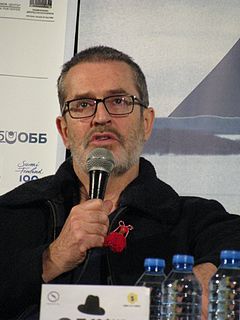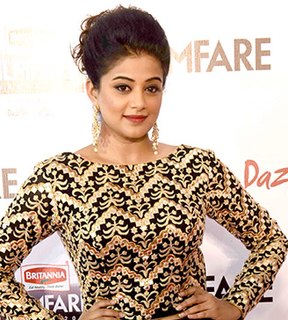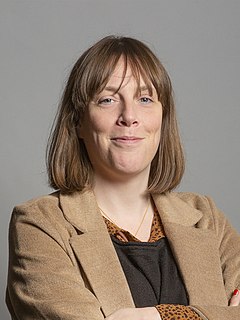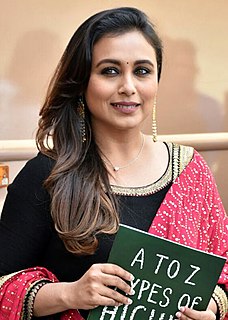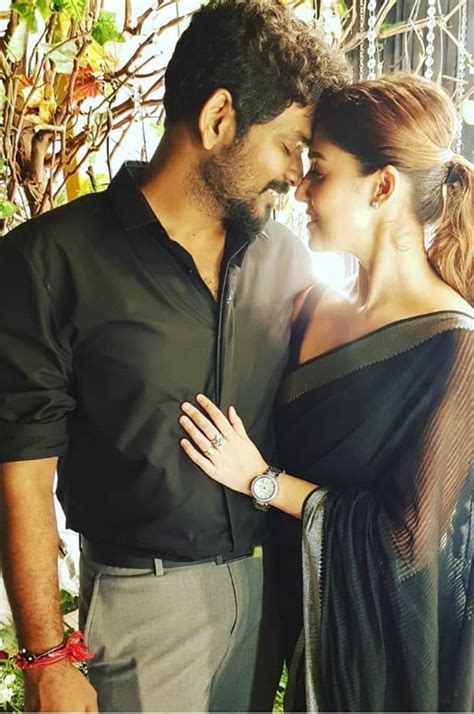Top 1200 Budget Film Quotes & Sayings - Page 9
Explore popular Budget Film quotes.
Last updated on December 19, 2024.
The bigger the budget, the more people that you have to coordinate and it's not easy to do that always because, not only do people have trouble communicating in that way, but often there are internal disagreements and everybody is not necessarily on the same page. Even in a big-budget movie with famous actors and directors, everybody could be on a completely different page. The director has to figure out a way of getting everybody on the same page, more or less, and keeping them there.
Screenwriting involves an often un-personal process. Co-writers, directors, producers, everyone has a say in what you put on a page, and stories are constantly changing according to budget, actors, and commercial needs. Films are a collaborative process and are also inherently narrative and structured, so you are always working within very tight parameters. Short fiction unleashes a more intimate voice and a passion for language. I believe short narratives can have the same amount of danger and drama as any action film.
As I had visualized, 'Heroine' is shaping up to be a very contemporary film with a different premise and strata. This film, like most of my other films, is a blend of facts and fiction. The film has a larger span, more characters, and costumes... a journey that revolves around an actress's life and the showbiz.
There'll be some savings from preventing double dipping by public servants which are currently able to access not one but two fully tax payer funded schemes and of course there will be out paid parental leave levy. So all up not only is this an important economic reform, an important reform to have to grow our economy more strongly, it also will leave the budget better off which will help us fix the mess that Labor has created with the budget.
For me, there's one film at a time, and my only benchmark is that my current film should be better than my last one, and I've made sure of that. If you Google the trailer of my first film - which I request you not to - you'll see the vast change in my approach towards my profession and the slow gain of maturity in performing.
One of the earliest memories I have of feeling the power of film music was watching Willy Wonka & the Chocolate Factory. That was a really clear epiphany for me, when I realized that each film has its own music, and that there was someone out there who wrote this very specific music for just this one film.
Truth is a pursuit, it's a quest. And proof is certainly in the pudding in this particular instance, because the film, and the evidence accumulated in making the film, led to this man's release from prison. And that's hardly ever happened, if it's happened at all, in any other film that I can think of.
In a film like 'Kannathil Muthamittal,' I can't have a Rajnikanth or a Kamal Haasan. If you have a star, the expectation of the film is different. So, you cast according to the subject of the film. Some films are best done with stars because it gives you a base on which if you can get the correct performance, you can reach higher.
I think 'The Girl with the Dragon Tattoo' is a good example of a film where you have to juggle a whole lot of information to follow that story, and even if you haven't read the book, it seems to go pretty well. And that is a film where the characters didn't meet until 74 minutes into the film, not on page 17.
Your first film is always your best film, in a way. There's something about your first film that you never ever get back to, but you should always try. It's that slight sense of not knowing what you're doing, because the technical skills you learn - especially if you have a film that works, that has some kind of success - are beguiling. The temptation is to use them again, and they're not necessarily good storytelling techniques.
Uganda's budget is 40 percent aid-dependent. Ghana's budget is 50 percent aid-dependent. Even if you cancel the debt, you don't eliminate that aid dependency. This is what I mean by getting to the fundamental root causes of the problem. Government, the state sectors in many African countries need to be slashed so that, you know, you put a greater deal of reliance on the private sector. The private sector is the engine of growth. Africa's economy needs to grow but they're not growing.
'Race' is one of the most successful film franchises in Bollywood. So I was really excited and honoured on being approached for the film. But since I was already committed to another film during the same time as the makers are planning to shoot 'Race 3,' things eventually didn't work out, unfortunately.
I left film because I felt that photography was my art. It was something I could do on my own, whereas film was so collaborative. I thought as a photographer I could make something that was artistic and that was mine, and I liked that. And it wasn't until I got back into film and I have very small crews and I could do very tiny filmmaking that wasn't 100 people that I still felt that I was making something artistic as a filmmaker. So, you know, I'm an artist, and whether it's photography or film, I want my voice to be there and I think my voice is very strong in this film.
The traditional Hollywood system is pretty rigid, but the film scene in, say, South Africa is booming with a lot of possibilities. If you have the cameras and reasonable capital, you can put your film in theatres next to 'Guardians of the Galaxy.' A great example of that was Kagiso Lediga's film 'Blitz Patrole.'
For the past three years, the CIVIX Student Budget Consultation has helped us to better understand the most pressing national issues for young Canadians. I am delighted to note that on key issues, such as balancing the budget, debt reduction, and lowering taxes, we stand in step with the thousands of students who participated in this initiative from coast to coast to coast. I want to thank the students and teachers for investing their time and energy in this worthwhile initiative. Their enthusiastic participation inspires great hope for Canada's future.
An institution which is financed by a budget - or which enjoys a monopoly which the customer cannot escape - is rewarded for what it deserves rather than what it earns. It is paid for 'good intentions' and 'programs'. It is paid for not alienating important constituents rather than satisfying any one group. It is misdirected by the way it is being paid into defining performance and results as what will produce the budget rather than as what will produce contribution.
You know, in an ideal world, people would just be intrigued and go and see a film without knowing anything about it, because that's where you're going to have the most experience of a film, the biggest, the most revelation of a film. But at the same time, I think there are benefits of having seen a trailer where you actually look forward to seeing moments in a film knowing that they're coming up. I don't know which is better.
Our film [Hide and seek ]was created as part of the Asian American Film Lab's 11th 72 Hour Film Shootout filmmaking competition, where filmmaking teams have just 72 hours to conceive, write, shoot, edit and submit a film based on a common theme. The winners were announced during the 38th Asian American International Film Festival in New York last July. The theme for 2015 was 'Two Faces' and was part of a larger more general theme of 'Beauty'.
I have songs that define characters from each film of mine. It can be a song from that particular film or something that just goes with the wavelength of the film; you listen to it, and it gives you that rhythm. I can't articulate how it helps, but it somehow gives you an understanding of the character.

